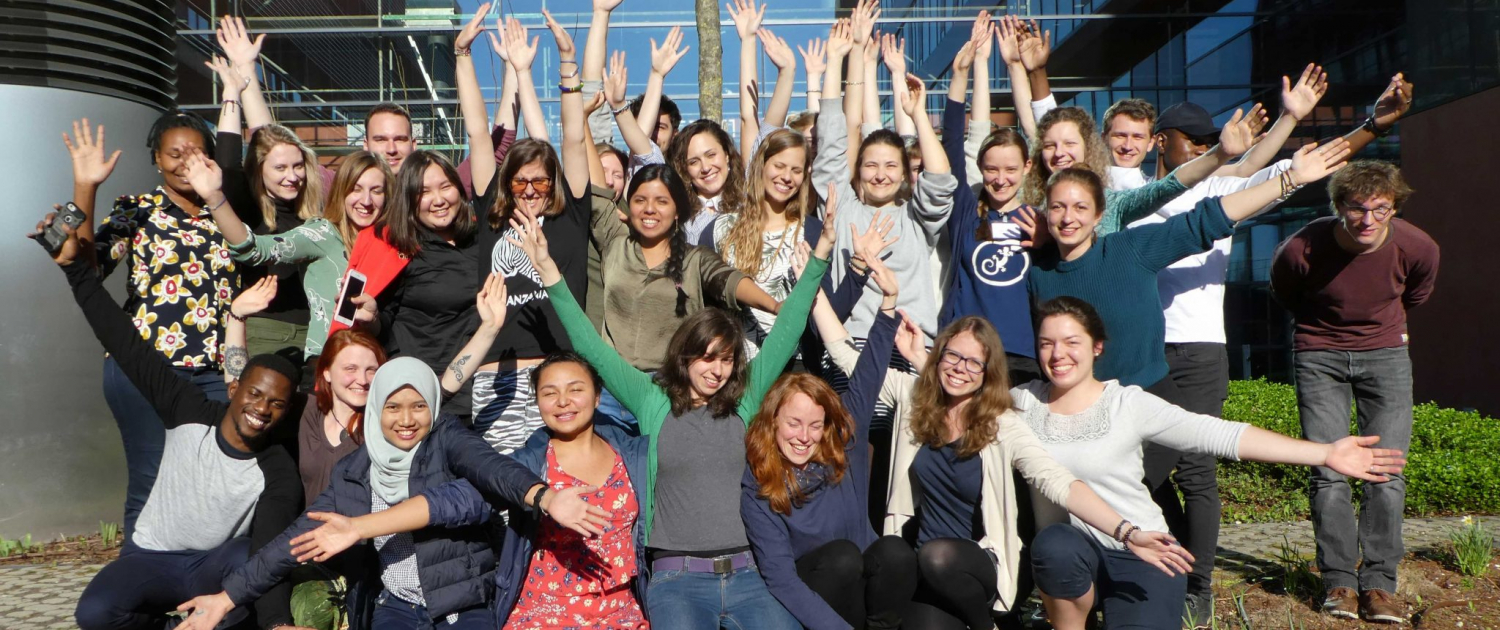For six international KfW Foundation Spring School scholars from Brazil, DR Congo, Guyana, Indonesia, Tanzania and Zambia the end of Spring School was only the beginning. Already during the four weeks on conservation project management training those six were busy designing and structuring their own “dream project” on paper. Day by day the conservationists developed, reviewed and refined their project proposals until they were ready to be submitted to the KfW Foundation.
Two weeks after the Spring School, finally, the scholars presented their dream conservation project to the KfW Foundation Selection Panel. Representatives of the KfW Foundation, Goethe University, WWF, FZS as well as an external consultant put the project proposals to the acid test and drilled the scholars with questions.
All six of them did a great job and their passionate as well as professional presentations did not make the panel’s decision any easier.
Eventually, however, after hours of discussion, a decision was made. We are happy to announce that the following three proposals were selected to receive funding from the KfW Foundation and will be implemented by the Spring School scholars:
 Livelihood improvements in the wildlife corridor villages, Tanganyika District, Tanzania by Regina Domonko
Livelihood improvements in the wildlife corridor villages, Tanganyika District, Tanzania by Regina Domonko
 Improvement of monitoring and evaluation standards of reintroduced sumatran orangutan in the Bukit Tigapuluh Landscape, Indonesia by Andhani Hartanti
Improvement of monitoring and evaluation standards of reintroduced sumatran orangutan in the Bukit Tigapuluh Landscape, Indonesia by Andhani Hartanti
 Sustainable use of socio-biodiversity in the Brazilian Savanna, Cerrado, Brazil by Carolina Siqueira
Sustainable use of socio-biodiversity in the Brazilian Savanna, Cerrado, Brazil by Carolina Siqueira
Congratulations to Regina, Andhani and Carolina and best of luck for the implementation of your projects!
We’re sure that the suitcases of all scholars and also all the other Spring School participants are full of newly acquired know-how and skills for the management of nature conservation projects.
We wish all participants the very best for their future!
P.S.: The photo in the top images shows the six KfW Foundation scholars together with the members of this year’s Selection Committee (from left to right: Bernd Siegfried, Regina Domonko, Hervé Kimoni, Issah Mulilo, Andhani Hartanti, Dr. Tobias Garstecki, Dr. Christof Schenck, Christine Mentzel, Joachim Gottschalk, Pia Puljanic, Dr. Thomas Müller, Timothy Babb and Carolina Siqueira). © KfW Foundation/Ruben Armbruster
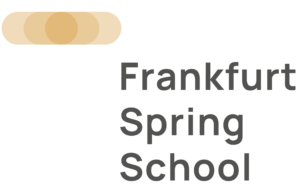
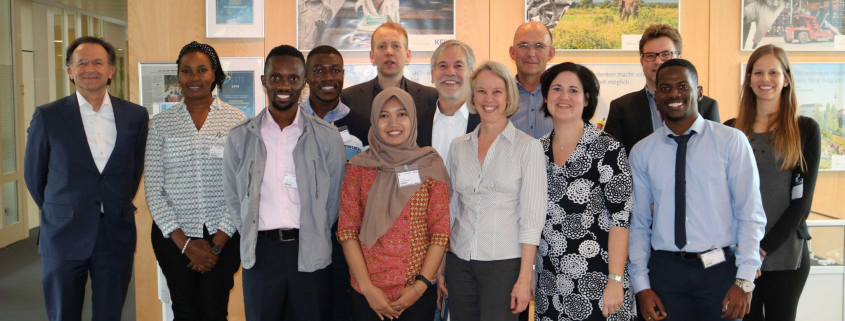 KfW Foundation/Ruben Armbruster
KfW Foundation/Ruben Armbruster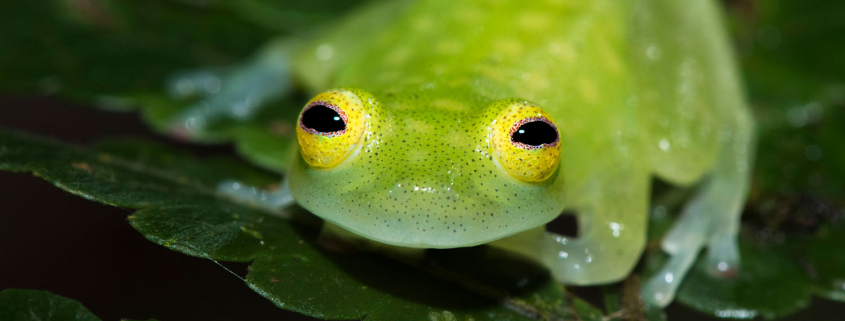
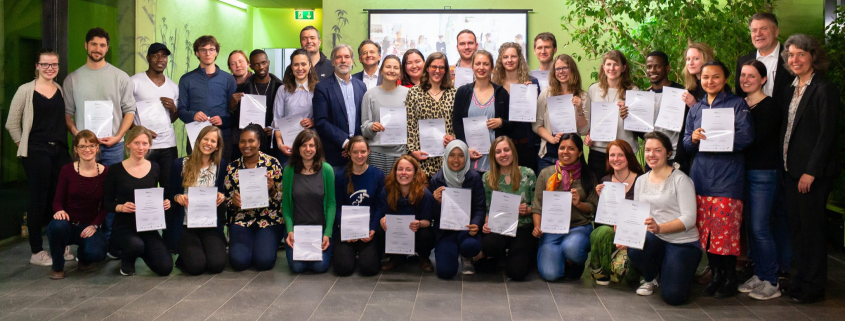 Jeldrik Schröer / FZS
Jeldrik Schröer / FZS “I am very pleased to have learned a lot about the design of a conservation project and to have strengthened my capacity on communication methods and conflict management. My expectations have been fully met.”
“I am very pleased to have learned a lot about the design of a conservation project and to have strengthened my capacity on communication methods and conflict management. My expectations have been fully met.” “For me personally the most interesting part of the Spring School was training provided by Martin Davies and Nick Folkard. It was absolutely amazing to be taught by experienced fundraisers who earned dozens of millions for nature conservation projects around the world. Spring School met my expectations 100% and I appreciate this great opportunity to be trained by highly-qualified professionals with wagon of knowledge in project management.”
“For me personally the most interesting part of the Spring School was training provided by Martin Davies and Nick Folkard. It was absolutely amazing to be taught by experienced fundraisers who earned dozens of millions for nature conservation projects around the world. Spring School met my expectations 100% and I appreciate this great opportunity to be trained by highly-qualified professionals with wagon of knowledge in project management.” “For me, the highlight of the spring school has definitely been the friends I have made. We have been so fortunate to have such an incredible group of people that have become like a little family. My expectations were met and exceeded – I have enjoyed it way more than I thought I would.”
“For me, the highlight of the spring school has definitely been the friends I have made. We have been so fortunate to have such an incredible group of people that have become like a little family. My expectations were met and exceeded – I have enjoyed it way more than I thought I would.” “The highlight was the excursion to Kellerwald Edersee National Park! It’s such a privilege to be part of the Spring School, but also that an excursion with bus etc. is organized for us to see such a special place! I think most people enjoyed being outside a lot after weeks of studying inside and the information provided by the staff was great. My expectations were totally met! I think it is special to have facilitators from all kinds of areas teaching us in a huge variety of topics relevant for successful conservation work. I particularly liked the input from people who worked in conservation projects on the ground. That was really hands-on.”
“The highlight was the excursion to Kellerwald Edersee National Park! It’s such a privilege to be part of the Spring School, but also that an excursion with bus etc. is organized for us to see such a special place! I think most people enjoyed being outside a lot after weeks of studying inside and the information provided by the staff was great. My expectations were totally met! I think it is special to have facilitators from all kinds of areas teaching us in a huge variety of topics relevant for successful conservation work. I particularly liked the input from people who worked in conservation projects on the ground. That was really hands-on.”